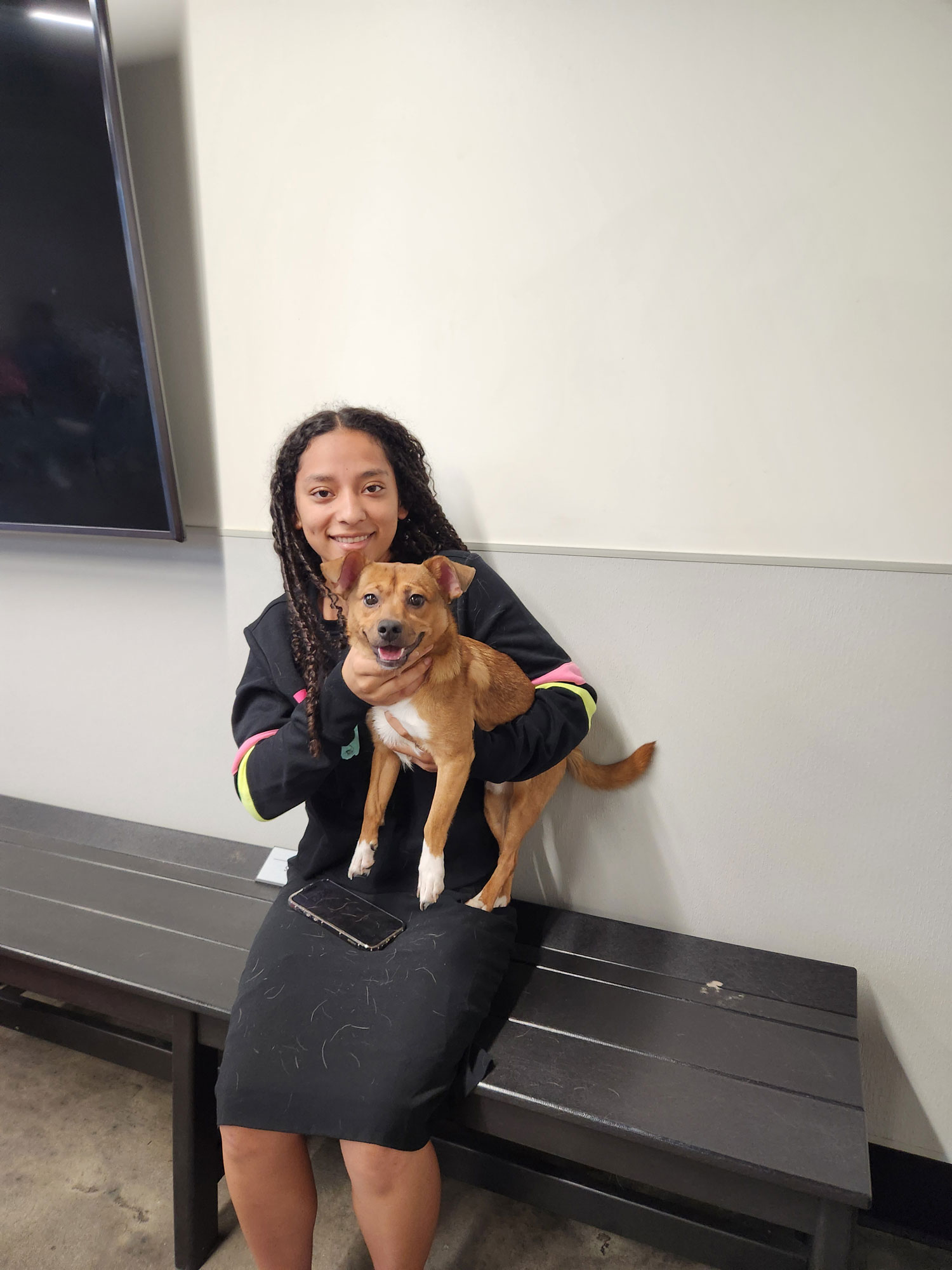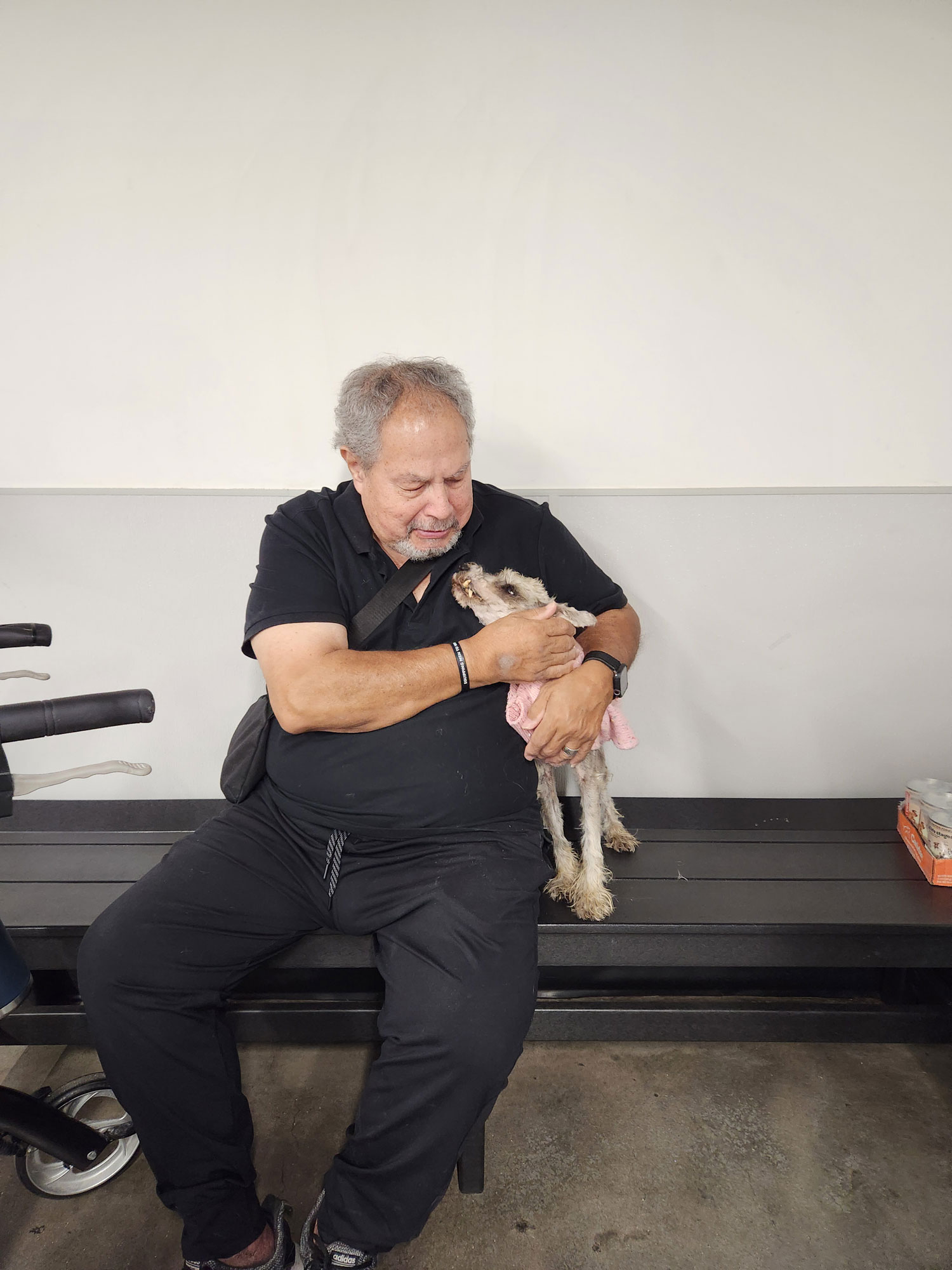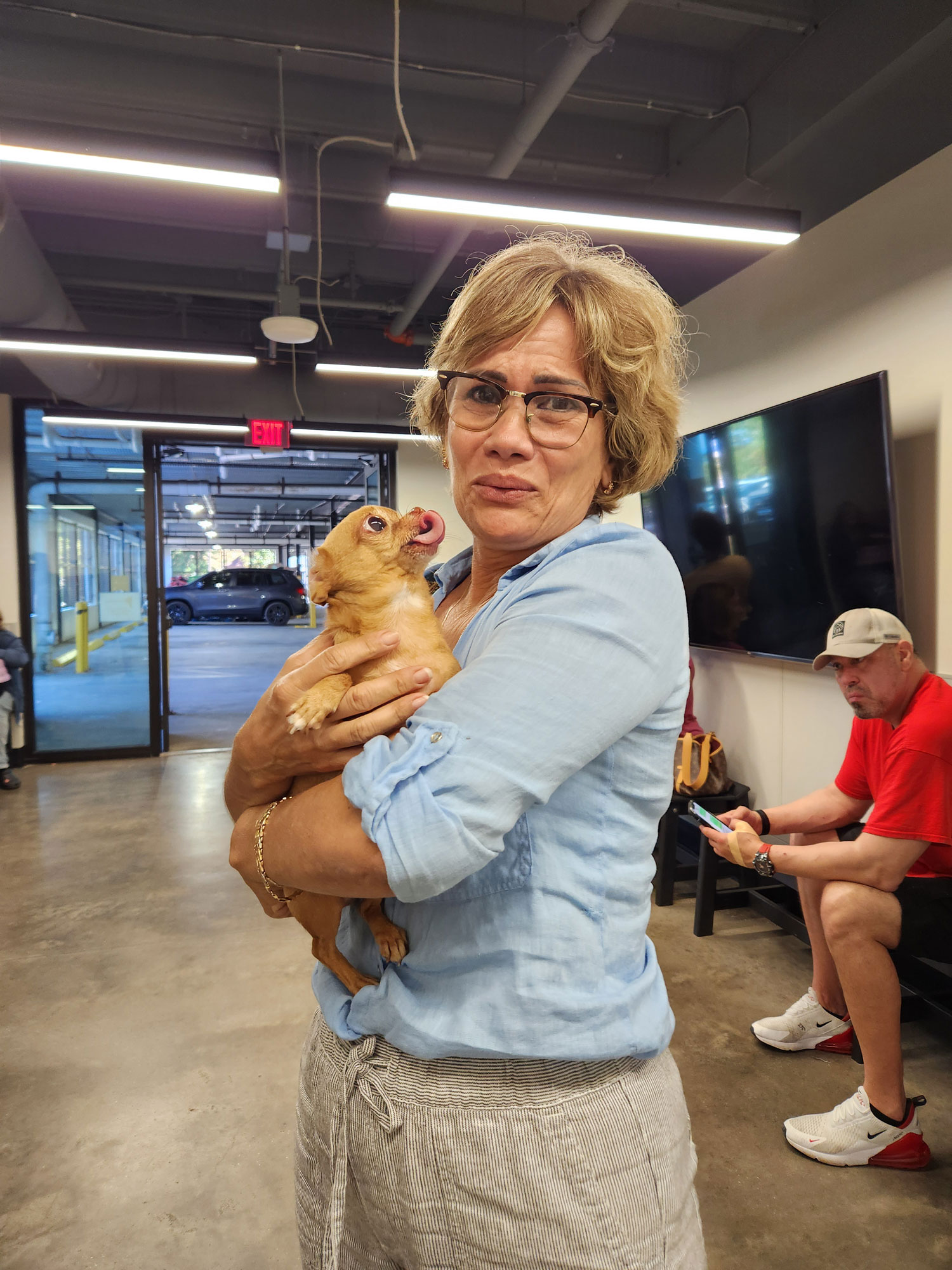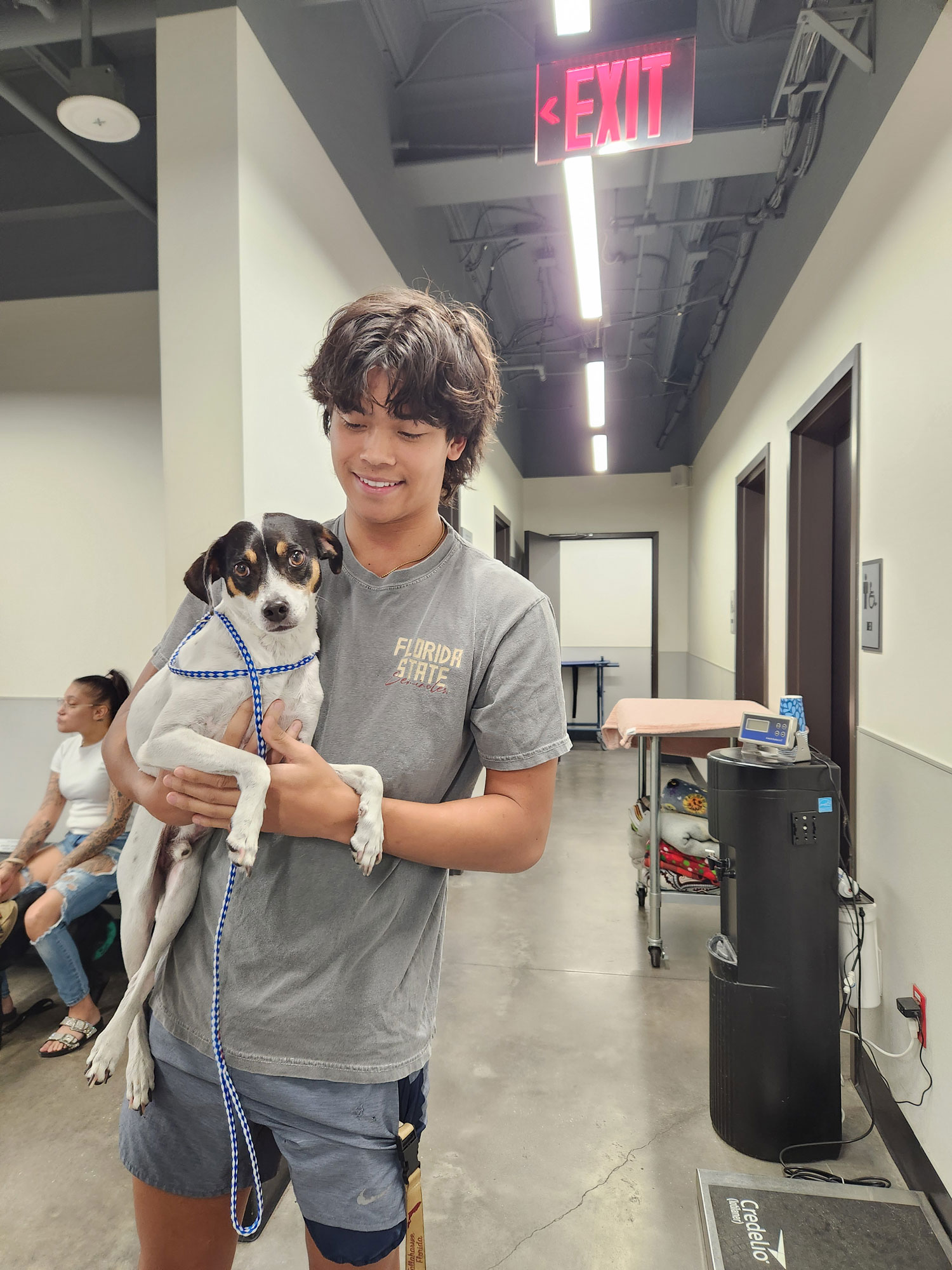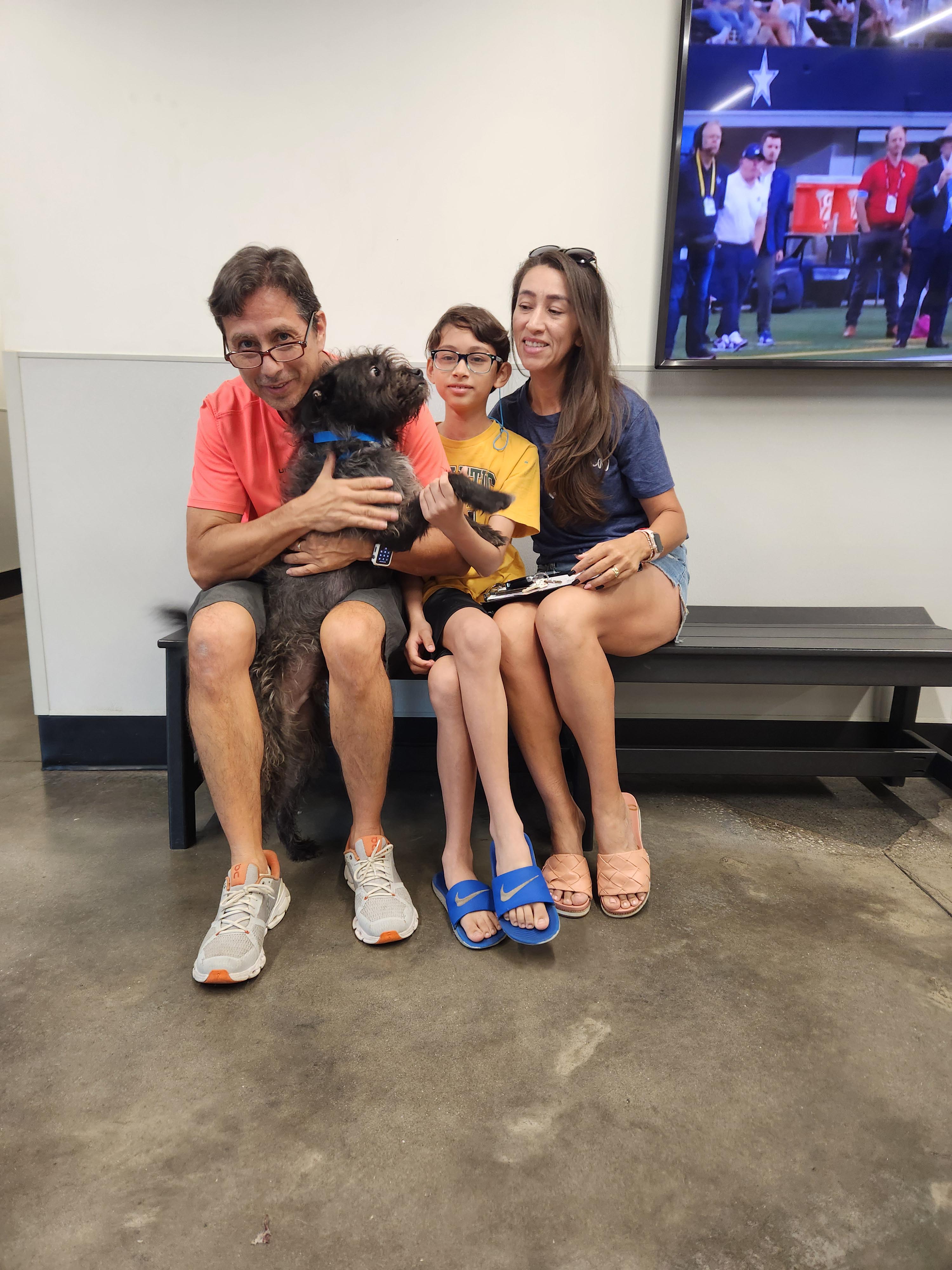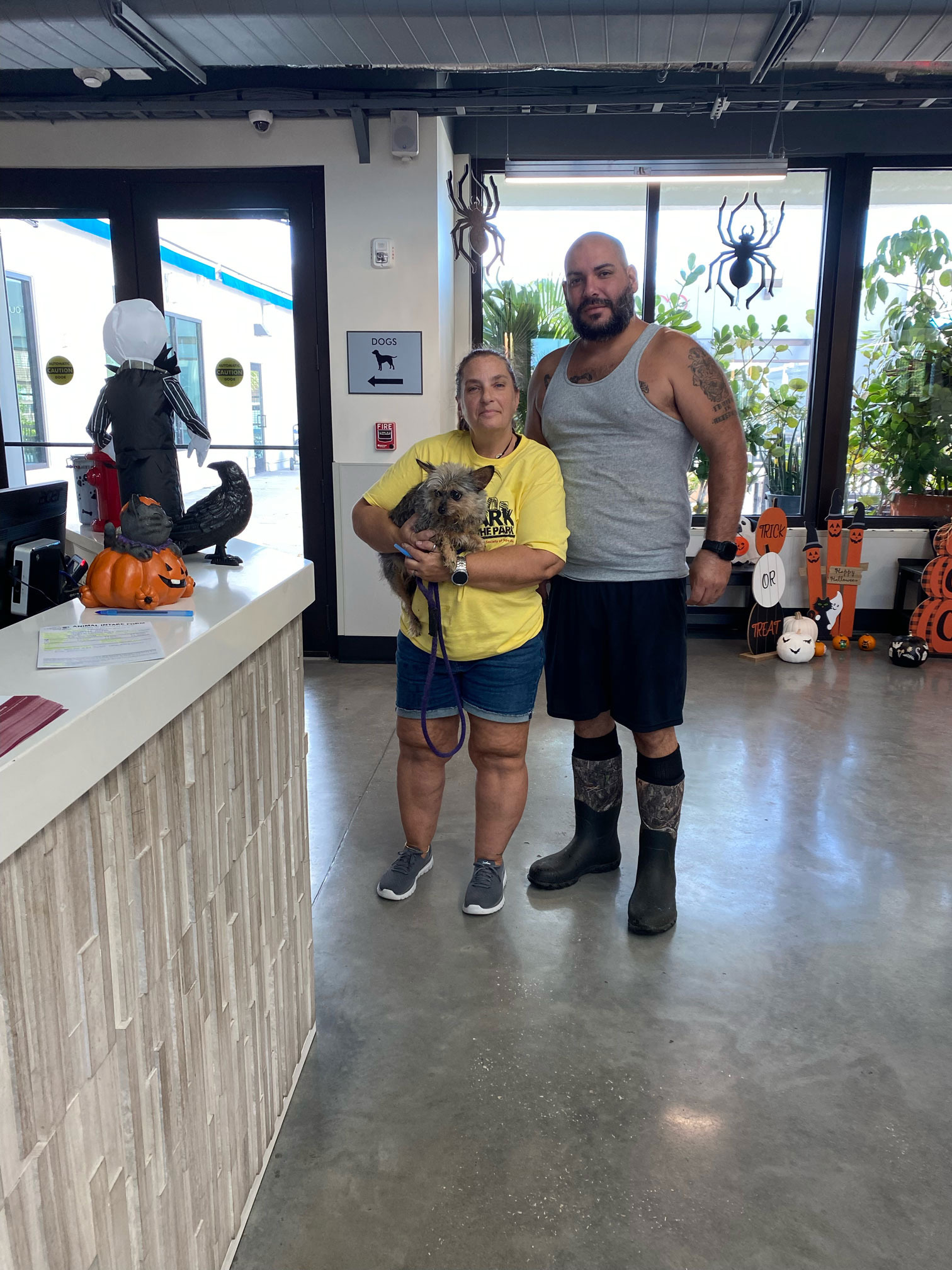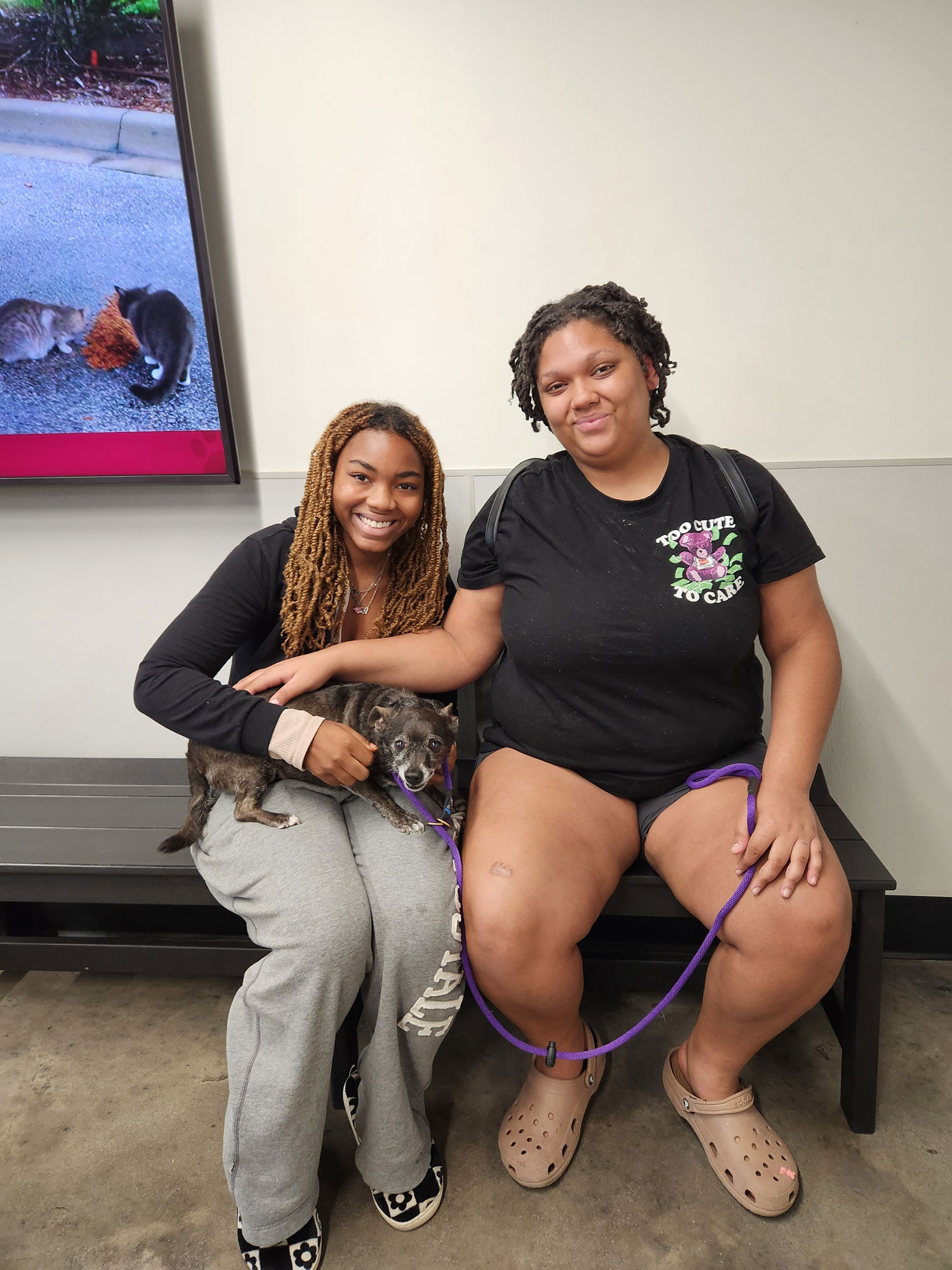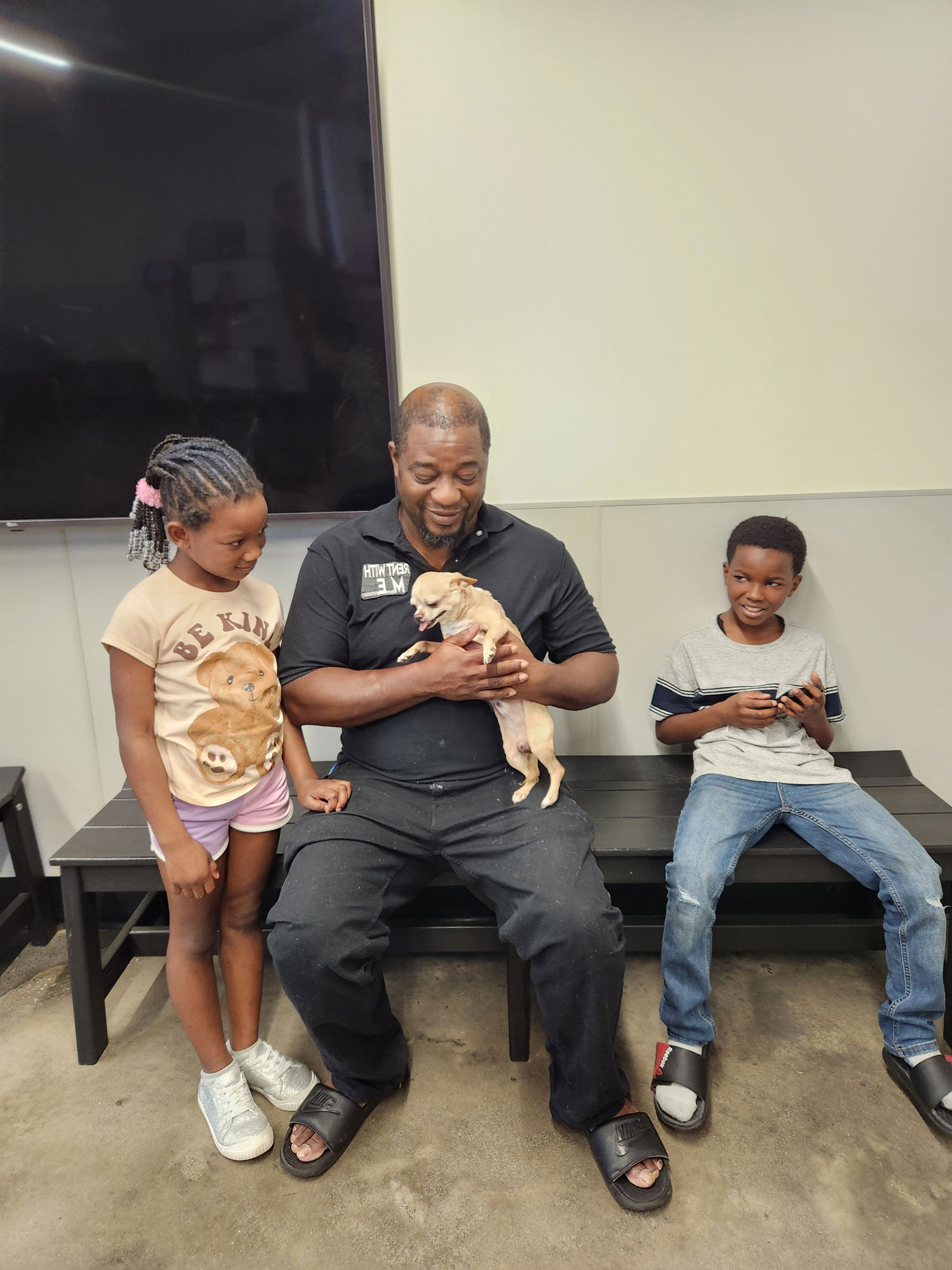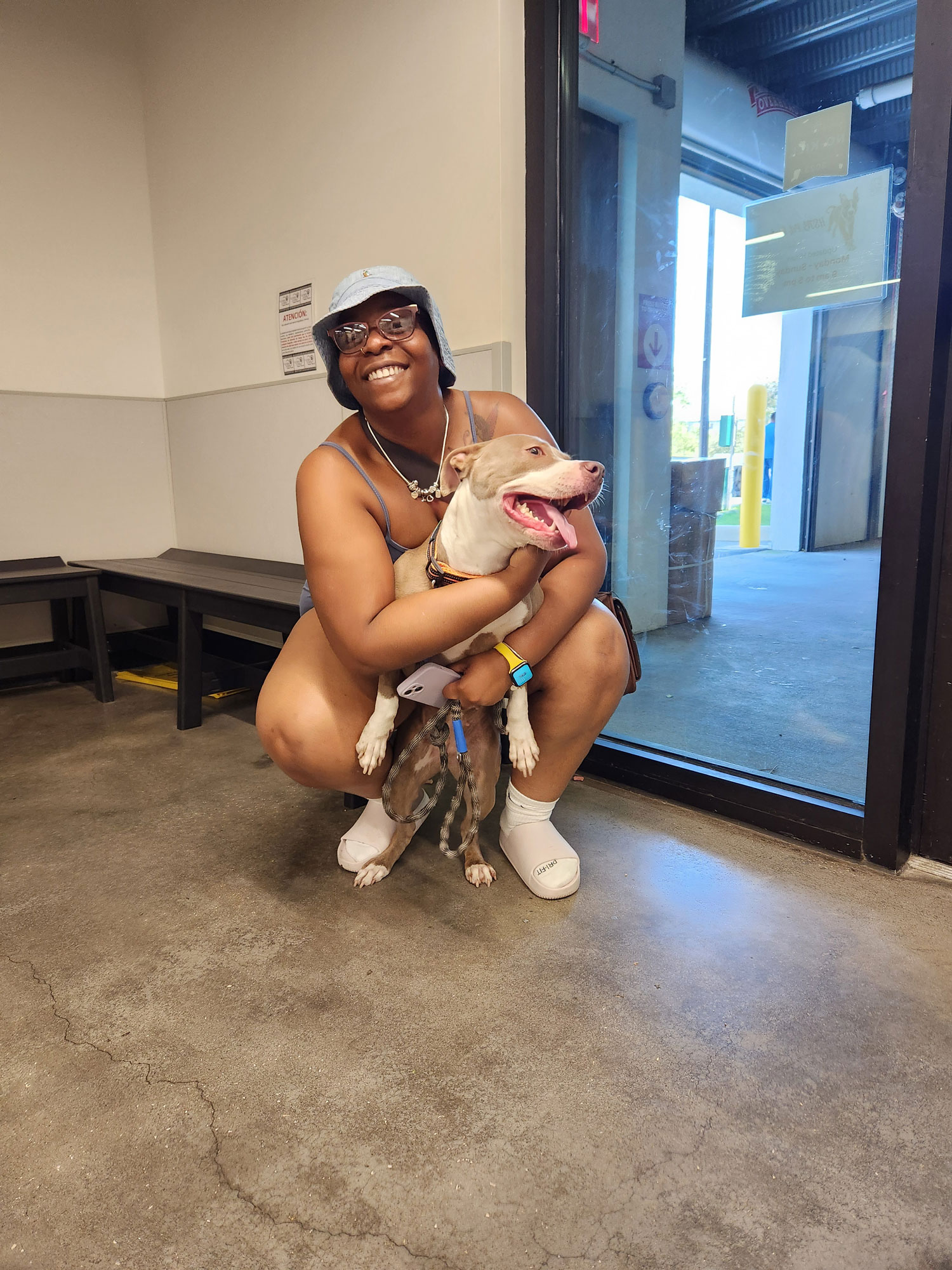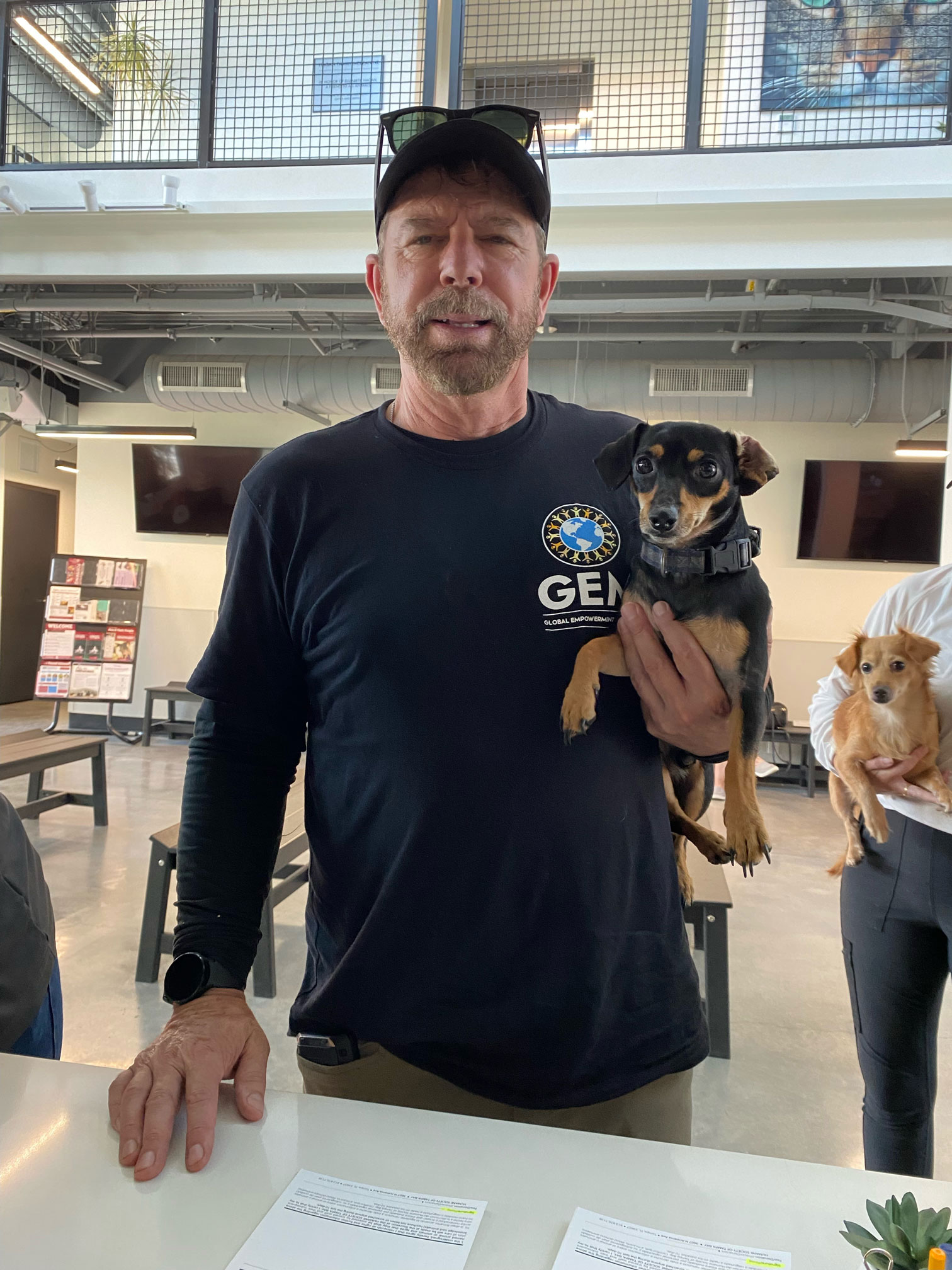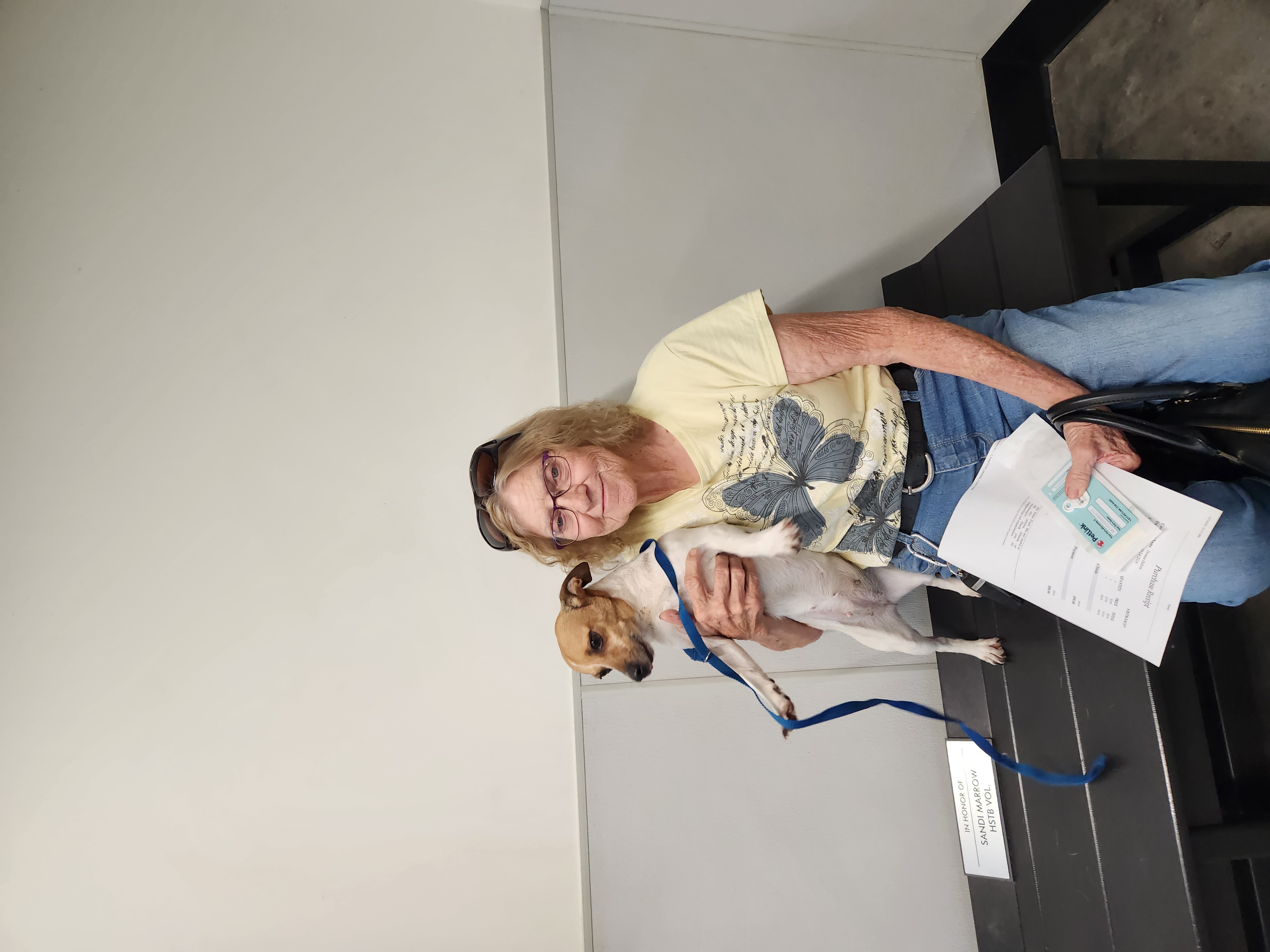The holiday season is here, and for many of us, that means traveling to visit family and friends. If you plan to bring your furry friend along for the adventure, preparation is key to ensuring a smooth trip for both you and your pet. From health certificates to travel tips, here’s everything you need to know—and how the Humane Society of Tampa Bay’s Animal Hospital can help.
Pre-Travel Checklist for Your Pet
- Schedule a Vet Visit
Many airlines and destinations require a health certificate for pets, issued by a licensed veterinarian within 10 days of travel. This document confirms your pet is healthy and up-to-date on vaccinations.- How the Humane Society of Tampa Bay Can Help: Our affordable Animal Hospital provides comprehensive check-ups and vaccinations, ensuring your pet meets all travel requirements.
- Microchip and ID Tags
Make sure your pet has a microchip with updated contact information and wears a collar with ID tags. A microchip can be a lifesaver if your pet gets lost during your travels.- Pro Tip: Our Animal Hospital offers microchipping services at a low cost, making it easy to protect your pet.
- Stock Up on Supplies
Pack everything your pet might need, including:- Food and water (plus bowls)
- Medications
- A leash and harness
- Waste bags or a litter box
- Comfort items like toys or blankets
- Prepare for Emergencies
Research the contact information of veterinary clinics near your destination. It’s also a good idea to save the Humane Society of Tampa Bay’s Animal Hospital contact number (813-870-3304) in case you need assistance before your trip.
Traveling By Car
For car travel, safety and comfort are top priorities:
- Use a Pet Carrier or Harness: Secure your pet with a crash-tested carrier or harness to prevent injury in case of sudden stops.
- Plan Rest Stops: Allow your pet to stretch their legs, use the bathroom, and drink water every 2-3 hours.
- Keep Your Pet Calm: Avoid feeding your pet a big meal before traveling to prevent motion sickness.
Traveling By Plane
Flying with pets requires additional preparation:
- Book Early: Pet-friendly spots can fill up quickly, so reserve a spot for your pet as soon as you book your ticket.
- Check Airline Policies: Each airline has unique requirements for pet travel, so review their rules and fees carefully.
- Practice Carrier Training: If your pet will be in the cabin or cargo, get them accustomed to their carrier before the trip to reduce stress.
How the Humane Society of Tampa Bay Can Support Your Journey
The Humane Society of Tampa Bay’s Animal Hospital offers a wide range of services to help you prepare for pet travel:
- Health Certificates: Required for interstate or international travel.
- Vaccinations: Keep your pet’s immunizations up to date.
- Microchipping: A safe, permanent way to identify your pet.
- Expert Advice: Our compassionate veterinarians can provide tips and guidance tailored to your pet’s needs.
Our Animal Hospital is open six days a week, making it easy to schedule a visit that works for your busy holiday schedule.
Extra Tips for a Happy Holiday Adventure
- Stick to Routine: Try to maintain your pet’s usual feeding and exercise schedule.
- Monitor Behavior: Watch for signs of stress, such as excessive panting, whining, or hiding, and comfort your pet accordingly.
- Respect Rules: Follow leash laws and pet policies wherever you go to ensure a safe and enjoyable experience for everyone.
Traveling with your pet can be a joyful experience with the right preparation. Whether you’re driving across the state or flying across the country, the Humane Society of Tampa Bay’s Animal Hospital is here to help you and your furry companion have a safe and stress-free journey.
Book your pre-travel check-up today by calling (813) 870-3304 or visiting www.HumaneSocietyTampa.org.







